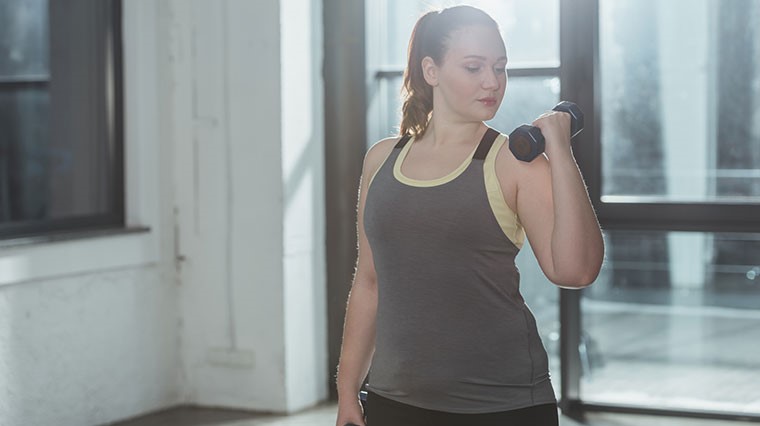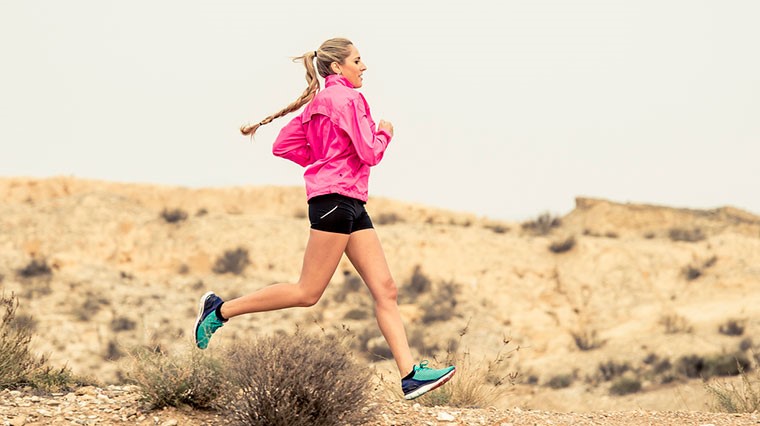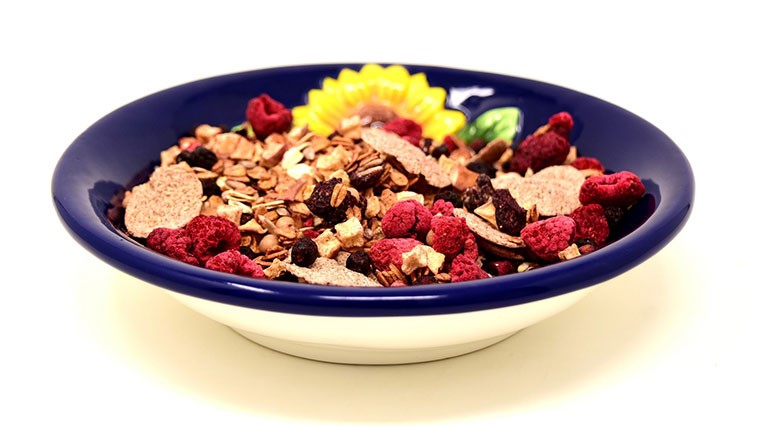Running To Lose Weight? Avoid These Common Mistakes

Running is a fun and practical way to work off your winter wobbly bits and build muscle.
Being spring, your temperature related excuses to skip exercise just flew out the window - no more staying wrapped up in a bed like a burrito to hide from the chill, or melting like an ice cream cone under the hot summer sun.
All you need is a good pair of running
shoes to start and the motivation to spring out the door, but many new runners
become trapped by misconceptions that squash progress and positivity.
We’ve busted 7 common mistakes and myths to
keep you on track of your running for weight loss goals.
You want to go straight from couch to running 10K
Whoa! Hold up! Running is naturally
stressful on your body and gradually increasing intensity and distance over a
matter of weeks is essential to reduce your risk of injury and prevent becoming
overwhelmed. The last thing you want is a sprained ankle or busted knee before
you even get started.
If you are a newbie runner or are generally
inactive, begin with walking as this low intensity exercise will allow your
body to adapt and strengthen. Although
the energy expended in walking isn’t equivalent to running per km, walking
itself is beneficial and will burn calories.
As you grow in confidence and train
yourself to breathe better you can include faster, jogging sessions into your
routine until you feel comfortable running for longer periods of time, and eventually
only walk intermittently to catch your breath.
You don’t give yourself a break

Running is a continuous cycle of muscle
breakdown and recovery. Once you’re running like a pro, it’s important to have
rest days to allow your muscles, bones and joints to repair
from the high intensity activity and to be stronger for it.
This doesn’t mean you have to glue yourself
to a squishy beanbag or impersonate a pumpkin with googly eyes all day – go
cycling, swimming, strength training or join a yoga class to work on your
flexibility. As long as your body is getting a break from the impact forces of
running and you’re varying the muscles you’re activating, you’re on the right
track.
Not to mention, a respite from running will give you all the more enthusiasm when you next hit the pavement.
The scale knows all (not)
Although it’s a handy tool to track your
weight loss, the scale is not an all-seeing Magic 8 Ball, so don’t panic or be
disheartened if you’ve plateaued or even gained a few grams.
You may have heard muscle weighs more than fat but more accurately, muscle is more dense than fat. 500g of muscle takes up less physical space than 500g of fat – making it possible to be slimmer and fitter but weigh more on the scale.
Your waist measurements may have shrunk,
your bum could be toned to perfection and you might not even have to hold your
breathe to squeeze into that little black dress, yet the scale may not budge,
so don’t sweat it.
You’ve settled into a routine

That’s awesome but… don’t get tied down by habit.
Finding the perfect 3km flat running circuit
from your front door and back again may be the nudge you need to keep your fitness routine consistent and regular, but don’t be afraid to shake
things up.
After a few weeks, your body will adapt to your go-to route and although you may be maintaining a steady weight, you’ll find you’re struggling to shed those last kilos despite the health benefits of your runs.
Challenge your body by swapping your road shoes for trail running shoes and enjoy the benefits of taking your fitness off-road or tackle hills or stairs to activate more of your muscles. Increase distance or speed and consider HIIT (high-intensity interval training) to improve cardio and weight loss benefits.
You’ve earned that cookie…. but
To put it simply, to lose weight you must
burn more calories than you consume (this is called a calorie deficit).
We’ve all been guilty of returning home
from our runs drenched in sweat, famished and hunting for a quick energy fix in
the form of a sugary reward.
Although a moderate indulgence once a week
shouldn’t set you off track, working up a sweat doesn’t give you the OK to give
in to your cookie cravings – a lot of people fall victim to this line of
thinking and let’s face it, who can stop at one cookie?
Don’t sabotage your efforts and instead let running be your reward - you’ve soaked in the good vibes of nature, unleashed your endorphins and enjoyed a designated ‘me’ time free from work and life stresses. Cookie, cookie who?
You’re running on fumes

If you fall into the habit of unleashing
your inner cookie monster post-run, it could be a matter of underfueling
leaving you starved of energy.
Not only does this increase your chances of
having a food binge post-workout but it can wreak havoc on your performance
and focus, because your body is like a machine – in needs fuel to function.
Alongside running on empty, fad diets like
cutting out carbs altogether put you at a major disadvantage. Without supplying your body with adequate
energy, it’s unlikely your famished-self will be able to sustain your running
intensity or distance, leading to less calorie burn in the long run, not to
mention the growth of a hangry storm cloud over
your head.
Appetites vary from person to person, but
if working out on an empty stomach doesn’t work for you, consider enjoying a
light, wholesome meal or snack before lacing up.
If
you exercise, you can eat whatever you want (not)
Sorry to burst your bubble, but there’s a
difference between being slim and being healthy – in the same way 100 calories
of spinach isn’t equivalent to 100 calories of Curly Wurlys. Doh!
Diet is super important to achieving your weight loss goals yet
it’s often disregarded, and many of us have a love-hate relationship with food
and struggle finding the right balance.
By diet
we’re not talking about temporary quick-fix schemes – we’re talking the real
deal - healthy food choices that you can maintain to keep the weight off years
from now, and love living in your own skin.
We’re not going to sugar-coat it. It’s
about the quality of the food. This
is even more important as you commit to running 3 or so times a week – you need
nutritiously rich food to fuel your movement and keep you satisfied.
Happy running!
